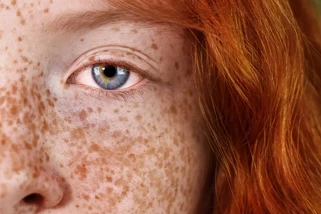The Importance of Hydration
The Importance of Hydration for Skin Health
You may have noticed that we often mention hydration. Well, healthy and glowing skin starts with proper hydration. And it's not just about drinking enough water. The skin's protective barrier consists of fats like cholesterol, fatty acids, and ceramides. This barrier is responsible for retaining moisture and keeping your skin hydrated and healthy.
In other words, by maintaining the balance of oil and water in our skin, we allow this extraordinary organ to perform its function most effectively. When the moisture barrier is damaged or compromised, serious skin hydration problems can occur. Fortunately, moisture barrier damage is not permanent. With the right lifestyle changes and skincare routine, you can reverse the damage and restore proper skin hydration.
Why is Hydration Key to Skincare?
Water is a crucial part of the human body's composition – it is what we contain and what we require. Replenishing its often-depleted reserves is essential for maintaining healthy hydration levels in our body. And, as you may understand from the introduction to this article, in our skin too.
Hydration is key to maintaining the skin's barrier function, which protects against external stressors like pollution, UV rays, and bacteria. Well-hydrated skin is more resilient, less prone to irritation, and looks plumper and younger. On the other hand, dehydrated skin can lead to issues like dryness, flakiness, increased sensitivity, and the appearance of fine lines and wrinkles.
Why Does Skin Lose Hydration?
I hope we can all agree that it's extremely important to hydrate the skin, but do you know why skin loses hydration? Sometimes, the things we do (or don't do) deplete the water content of our skin. These can be activities like:
- Spending a lot of time in the cold or heat
- Using harsh soaps, detergents, and chemicals
- Using rough sponges, towels, or exfoliating products
- Long, hot showers or baths
- Not drinking enough water during the day
The good news is that all of the above problems can be easily resolved. By drinking a few extra glasses of water each day, reducing shower time, or limiting the use of soap, you can significantly improve your skin's hydration levels.
Of course, there are medical conditions that can lead to dehydrated skin, such as:
- Thyroid diseases
- Menopause
- Diabetes
- Poor diet, etc.
In such cases, your doctor should help you find the best treatment considering your condition.
How to Recognize Dehydrated Skin?
Before we start discussing all the ways you can hydrate your skin, you need to know how to recognize when your skin needs care. There are many signs of dehydration, so it should be easy to identify when you have it. Some signs to look out for are:
- Dryness and flakiness: even oily skin can feel tight and look flaky when dehydrated.
- Dull appearance: dehydrated skin often lacks a healthy glow and may look lifeless.
- Fine lines and wrinkles: lack of hydration can make fine lines more visible.
- Sensitivity: dehydrated skin is more prone to redness and irritation.
- Dark under-eye circles: dehydration can make dark circles more prominent.
Overall, dehydrated skin will lose its elasticity and will not have the radiant glow that comes with hydrated skin. Hydration is also extremely important for those with acne-prone or oily skin, as proper hydration reduces the likelihood of inflammatory markers like breakouts or redness.
If you're unsure about your skin's hydration level, there's a simple test you can do. Using your thumb and index finger, pinch the fleshy part of your skin where the cheek meets the under-eye area. When you do this, your skin will momentarily "tighten" or remain in the shape of your pinch. Hydration levels are indicated by how quickly the skin returns to its usual position. The faster it returns, the higher the hydration level. Skin that returns slowly often indicates dehydration.
How to Keep Your Skin Hydrated?
As I mentioned earlier, there are steps you can take every day to improve your lifestyle and health, including, of course, your skin's hydration level. Here are some simple tips for maintaining skin hydration:
- Get enough sleep (8-9 hours)
- Limit shower time to 5-10 minutes and use lukewarm water, for the bravest, cold water :)
- Drink enough water
- Limit the amount of coffee and alcohol you consume daily
- Limit – or better yet, completely avoid – smoking
- Eat a varied diet rich in essential fatty acids
- Protect your skin from the sun, wind, and cold
- Try to reduce stress levels
Skincare Routine Changes
If we're talking about skincare, important changes you can introduce to your routine are:
- Switching to a gentle cleanser
- Using products that contain ceramides, hyaluronic acid, lipids, and fatty acids
- Occasionally using an overnight hydrating mask
Taking care of your skin requires consistency and awareness of daily habits. Hydration is key to healthy, glowing skin, and the changes you make today can bring long-term benefits to your skin's appearance and health. ?
With love,
Mala od lavande







